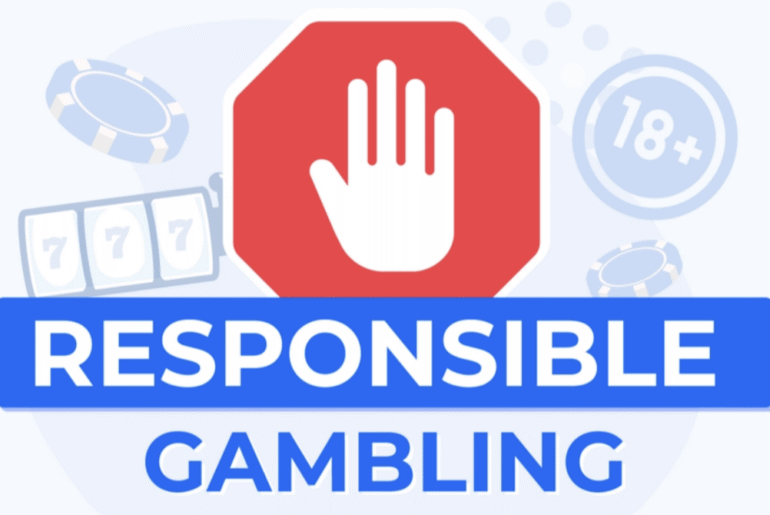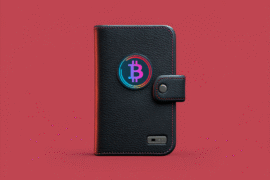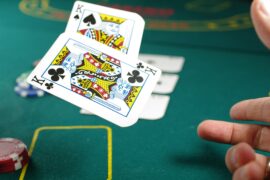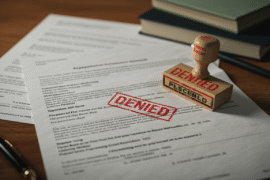This article may contain references to products or services from one or more of our advertisers or partners. We may receive compensation when you click on links to those products or services. Nonetheless, our opinions are our own.
The information presented in this article is accurate to the best of our knowledge at the time of publication. However, information is subject to change, and no guarantees are made about the continued accuracy or completeness of this content after its publication date.
Online gambling is now more convenient than ever before, providing recreation, strategy, and the excitement of possible winnings. But like any entertainment that involves real money, there are risks involved. And that’s where responsible gambling comes in, a principle every gambler should know before their first wager.
Before we dive into practical tips and tools, remember this: not all platforms are equal. Playing licensed, open operators like Stake casino is playing where responsible gambling is a value.
This guide explains what responsible gambling is, gives an overview of tools that can help you stay in control, and covers key practices to make sure that your gambling is enjoyable and not a problem.
What is Responsible Gambling?
Responsible gaming is a set of behaviors and habits that guarantee the player remains in control of their game. It’s making informed choices, setting limits, and knowing when to walk away.
In the end, responsible gaming is not about not gaming at all, it’s about gaming in a way that won’t interfere with your personal, financial, and work life. It encourages accountability, awareness, and self-control.
It also includes efforts by regulators and casinos to promote fair play, support at-risk users, and reduce gambling-related harm.
Why Does Responsible Gambling Matter?
To most, gambling is entertainment. But like any risk-reward behavior, it can become compulsion if not kept in check.
Some of the reasons responsible gambling is important:
- Protects your money – Self-limiting averts spontaneous loss.
- Fosters mental health – Avoids stress, anxiety, and shame.
- Makes it enjoyable – It has to be entertaining, not desperation.
- Fights addiction – Earlier identification and self-reflection avoid entrenched issues.
Although few gamblers become people with harsh gambling issues, millions of them experience short-term challenges like chasing losses, lying about losses, or overspending. Responsible gambling is not a “best practice”, it’s an expectation for healthy gambling.
Key Responsible Gambling Tools
Most reputable online casinos possess built-in features to make sure users are kept in control. Let us explore the most popular and beneficial ones:
Deposit Limits
This feature allows you to set your daily, weekly, or monthly top-up amount. Activated, you will not be able to exceed the limit, stopping you from making impulsive top-ups.
Deposit limits are particularly useful for price-sensitive players. They make you plan ahead your bankroll and make rational choices about when and how much you use it.
2. Loss Limit
This feature restricts how much money you can lose over a specified period. When you reach the limit, further play is restricted until the limit times out.
Loss limits are helpful for players who are likely to pursue losses, a common reason for spiraling.
3. Wagering Limits
Wagering limits, unlike loss limits, restrict the entire amount you can wager, win or lose. This helps to restrict high-bet sessions and requires you to reduce the pace of your play.
4. Session Time Limits
Time can pass like winged horseback rides while you are gaming. Session limits automatically disconnect or warn you after a set amount of play time. Even some casinos disconnect you for the day when you hit a limit.
This feature keeps gambling in check with all other areas of your life, encouraging healthy behavior.
5. Reality Checks
Reality checks are on-screen prompts that appear from time to time to remind you about playing time, money spent, and your balance. They are gentle reminders to bring you back to reality when you are too focused on playing.
6. Cool-Off Periods
Also known as “take a break” options, these allow you to choose to shut down your account for a brief period of time, usually 24 hours to 7 days. During this time, you cannot deposit, bet, or receive promotional offers.
Cool-off periods are useful after a losing session or when it becomes apparent your emotions are impacting decisions.
7. Self-Exclusion
This is an even stronger action. Self-exclusion allows you to close yourself out of your casino account for months, or even years. Some casinos enroll players in national or international exclusion programs, so you will not be able to open new accounts elsewhere either.
Self-exclusion is essential to players who recognize they have an issue and must make a deliberate effort to quit.
8. Account Activity Reports
Most websites grant players access to their gambling history, including deposits, withdrawals, time played, and game results. Reviewing this information will help you identify patterns and make improved decisions regarding your habits.
Voted "Best Overall Budgeting App" by Forbes and WSJ
Monarch Money helps you budget, track spending, set goals, and plan your financial future—all in one app.
Get 50% OFF your first year with code MONARCHVIP
Best Practices for Players
In addition to using tools provided, responsible gambling also involves daily habits and knowing yourself. Below are chief practices each player has to adopt:
Set a Budget, And Stick to It
Before you even log in, decide how much money you can afford to lose. Don’t gamble as a source of income or fix for financial problems. Only gamble what you can afford to lose. Divide your budget by session and don’t top up when your bankroll has run out.
Use Time Limits
Don’t let gambling devour hours of your day. Use timers or session reminders to limit your play. Combining gambling with other leisure activities keeps you grounded.
Don’t Chase Losses
This is a slippery slope. In the event that you lose, take it and quit. Losing chase in an attempt to recoup what you have lost will most likely lead to further loss and emotional pain.
Avoid Gambling When Drinking
A drink or drugs can cloud the mind, make it possible to go over budget or disregard boundaries. Quality gambling calls for a sharp brain.
Be Honest with Yourself and Others
Keep track of how much and how often you spend. If you feel you’re out of control, speak to a trusted friend or relative. Secrecy and denial are typical warning signs that a harmless hobby is getting out of hand.
Avoid Emotional Gambling
Don’t gamble when stressed, upset, or angry. Gambling may never be used as a strategy to cope. Negative emotions have a tendency to drive bad decisions and self-destructive habits.
Know When to Stop
If gambling stops being fun, or if you’re worrying about losing or getting guilty feelings, take a break. Use cool-off periods or quit voluntarily. Taking a break can clear the head and prevent burnout.
How Casinos Support Responsible Play
Licenses internet casinos do not merely offer games, they promote healthy, safe enjoyment of those games. Here’s how:
- Make visible connections to support services like gambling helplines and exclusion schemes
- Make responsible gaming tools accessible and prominent on the user dashboard
- Train customer support representatives to recognize warning signs and offer help
- Monitor user behavior proactively to identify high-risk players
- Opt-out of promotions if users place some limits or exclusions
- Some sites even collaborate with gambling harm specialists and charities so their model keeps up with player protection.
Casinos such as Stake, for instance, publicly dedicate themselves to transparency and control, offering users strong self-regulation tools and engaging with third-party auditing companies to ensure fairness.
And believe us – gambling at supportive casino really does matter and makes a huge difference.
Recognizing Problem Gambling
Despite having tools and best practices available, problem gambling can creep up on you. The signs aren’t necessarily clear-cut, but catching it early is the goal.
Warning signs are:
- Obliterating thoughts about gambling or talking continuously about gambling
- Lying about time or money spent gambling
- Gaming with cash meant for bills or expenses
- Borrowing or stealing to fund gaming
- Feeling guilty, anxious, or depressed after a session
- Continuously trying to cut back, unsuccessfully
- Using gaming as an escape from pressures of life
If you notice any of the above signals in yourself or another individual, it is time to act, not become oblivious to the situation.
When and Where to Seek Help
here’s no shame in asking for help. Gambling addiction is a recognized psychological condition and is treatable through counseling, support groups, and professional care.
Trusted Resources:
- Gamblers Anonymous – Peer-led support groups worldwide
- BeGambleAware.org – Education, support, and 24/7 helpline
- GamCare (UK) – Free treatment and resources for individuals and families
- National Council on Problem Gambling (US) – Hotlines and screening tools
- Gambling Therapy – International online support, chat, and group counseling
A number of countries have subsequently introduced self-exclusion databases where players can exclude themselves voluntarily from all the licensed operators in that regime.
The first step is tough, but it is the beginning of regaining control.
Final Words
Gambling can be exciting, social, and fun, but always with restraint, caution, and awareness. The development of responsible gambling products has empowered players more than ever before to control their behaviors and set healthy boundaries.
Use those products. Adopt the habits. Pay attention to your emotions before, during, and after you gamble.
Whether you’re playing slots as entertainment, wagering sports on your favorite team, or exploring fresh sites, being a responsible gambler should be your default mode, not an afterthought.
It’s not about not betting at all, it’s about betting smart, staying safe, and enjoying the game without losing yourself in the game.

Reviewed and edited by Albert Fang.
See a typo or want to suggest an edit/revision to the content? Use the contact us form to provide feedback.
At FangWallet, we value editorial integrity and open collaboration in curating quality content for readers to enjoy. Much appreciated for the assist.
Did you like our article and find it insightful? We encourage sharing the article link with family and friends to benefit as well - better yet, sharing on social media. Thank you for the support! 🍉
Article Title: Beginner’s Guide to Responsible Gambling
https://fangwallet.com/2025/05/29/beginners-guide-to-responsible-gambling/The FangWallet Promise
FangWallet is an editorially independent resource - founded on breaking down challenging financial concepts for anyone to understand since 2014. While we adhere to editorial integrity, note that this post may contain references to products from our partners.
The FangWallet promise is always to have your best interest in mind and be transparent and honest about the financial picture.
Become an Insider

Subscribe to get a free daily budget planner printable to help get your money on track!
Make passive money the right way. No spam.
Editorial Disclaimer: The editorial content on this page is not provided by any of the companies mentioned. The opinions expressed here are the author's alone.
The content of this website is for informational purposes only and does not represent investment advice, or an offer or solicitation to buy or sell any security, investment, or product. Investors are encouraged to do their own due diligence, and, if necessary, consult professional advising before making any investment decisions. Investing involves a high degree of risk, and financial losses may occur including the potential loss of principal.
Source Citation References:
+ Inspo
There are no additional citations or references to note for this article at this time.












































